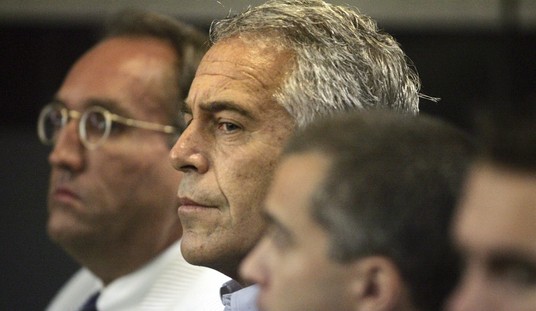After The Dark Knight, we already knew Batman was a Republican. In The Dark Knight Rises, this son of privilege who made a fortune in his own right stands up for free enterprise and individualism against the collectivist demagogues who stir up class warfare and vilify the wealthy. That’s right — this time he’s BatMitt.
Here are the political takeaways from The Dark Knight Rises:
5. Bane is not Bain.
Rush Limbaugh, who apparently hadn’t seen the new movie, initially wondered, “Do you think that it is an accident?” that the movie’s lead evildoer is named Bane in a summer of chatter about Mitt Romney’s former outfit Bain Capital.
But not only is the bad guy’s name a coincidence (it dates back to 1993), Bane is the opposite of Bain. The villain plots to destroy Bruce Wayne by attacking the Gotham Stock Exchange, then launches a Marxist revolution in which the lower orders strike down the financiers and the “oppressive” bourgeoisie. Bane even empties the prisons, though to his credit he doesn’t do what the Democratic Party would, which is to guide the mob to the nearest polling place and forbid anyone to check their IDs.
4. “TDKR” is an indictment of the collectivists, lately known as Occupy.
The director of the current series of Batman films, Christopher Nolan, is cheeky about showing us where Wall Street bashing would go if it were led by a psychotic hulk in a mask instead of a feckless horde of weedy environmental justice majors. When one trader tells Bane that there’s no money at the stock exchange to steal, he replies, as an OWS protester would, “Then why are you here?”
Nolan has the Bane-iacs spoof the Reign of Terror to illustrate the necessary link between upending the class system and violence. Even Alec Baldwin won’t give up his property voluntarily. Meanwhile, the jewel thief Selina Kyle (Anne Hathaway) warns Batman that his system of haves and have-nots is headed for the ash heap of history, presenting herself as a crusader for the underclass who is helping to even out unfair wealth distribution. Batman, meet Robin (Hood). Only Batman can restore the old order, in which the cleverest and most able, like Bruce Wayne, are entitled to live in mansions.

3. Batman is an American exceptionalist.
More than any other superhero, Batman is a reflection on America. He is the only masked marvel whose movies consistently earn tens of millions more in North America than in the rest of the world combined. (Sole exception since 1989: Batman and Robin. Maybe it was funny in Italian.) Action blockbusters typically make about twice as much overseas as domestically. Even Captain America (which was called The First Avenger in some territories) earned more overseas.
If Superman stands for the ungainly immigrant who came here after his people were wiped out in a holocaust and realized his full potential thanks to America, Batman represents the anti-collectivist. He captivates America for the same reason communism never caught on here, the same reason citizens hold firearms for self-defense instead of just hunting, the same reason we are the only country that questions the wisdom of socialized medicine. He is the avatar of a people whose primary wish is to be left alone.
Because they didn’t offer as much opportunity, freedom, and hospitality to immigrants, no European nation grew as large and strong as we did. Hence European countries generally aren’t powerful enough to fight wars on their own, necessitating tangled webs of alliances and a keen interest in what the neighbors might be thinking. The U.S. takes little interest in others’ politics and, protected by history’s two largest moats, can choose which wars to join, always as the senior partner or even alone if need be. The European Union constitution (aka the Treaty of Lisbon) is upholstered with guarantees about all the wonderful things the authorities can do for you in exchange for granting them more power; the U.S. Constitution bristles with warnings about what the government can’t do to you. Even the European press is much less antagonistic toward government than ours, which patrols the night restlessly in search of wrongdoing.

2. Batman is a capitalist hero.
Like Henry Ford or John D. Rockefeller (or Iron Man, whose last film earned an unusually high 50% of its take domestically), Batman is the capitalist who doesn’t apologize for being superior to other men. In Europe, where the road to riches is paved with bureaucratic landmines and hard work has always carried an air of the unseemly, aristocrats like Bruce Wayne aspire merely to potter around in “the civil service” or spend the family fortune. Batman is an apostle of creative destruction who keeps forging ahead with the new — not a fairness freak who obsesses over how to divide up the existing. Christian Bale won the role because of his delightful turn as a hilarious parody of a heartless investment banker in the wicked black comedy American Psycho, and in playing Bruce Wayne he carried over much of that heedless all-American swagger.
1. Batman is a Burkean.
Bane’s desolate and ravaged Gotham, which Nolan portrays as the natural endpoint of an Occupy Wall Street-style uprising, is really just a dictatorship that pretends to be a people’s government, and The Dark Knight Rises is a ferocious rebuke to “leaders” who claim that popular backing and concern for the downtrodden justifies their seizing ever more power for themselves. Batman understands that, in the words of his fellow conservative Edmund Burke, “it is a general popular error to suppose the loudest complainers for the public to be the most anxious for its welfare.”
***
More on Superhero Movies and Comics at PJ Lifestyle:












Join the conversation as a VIP Member